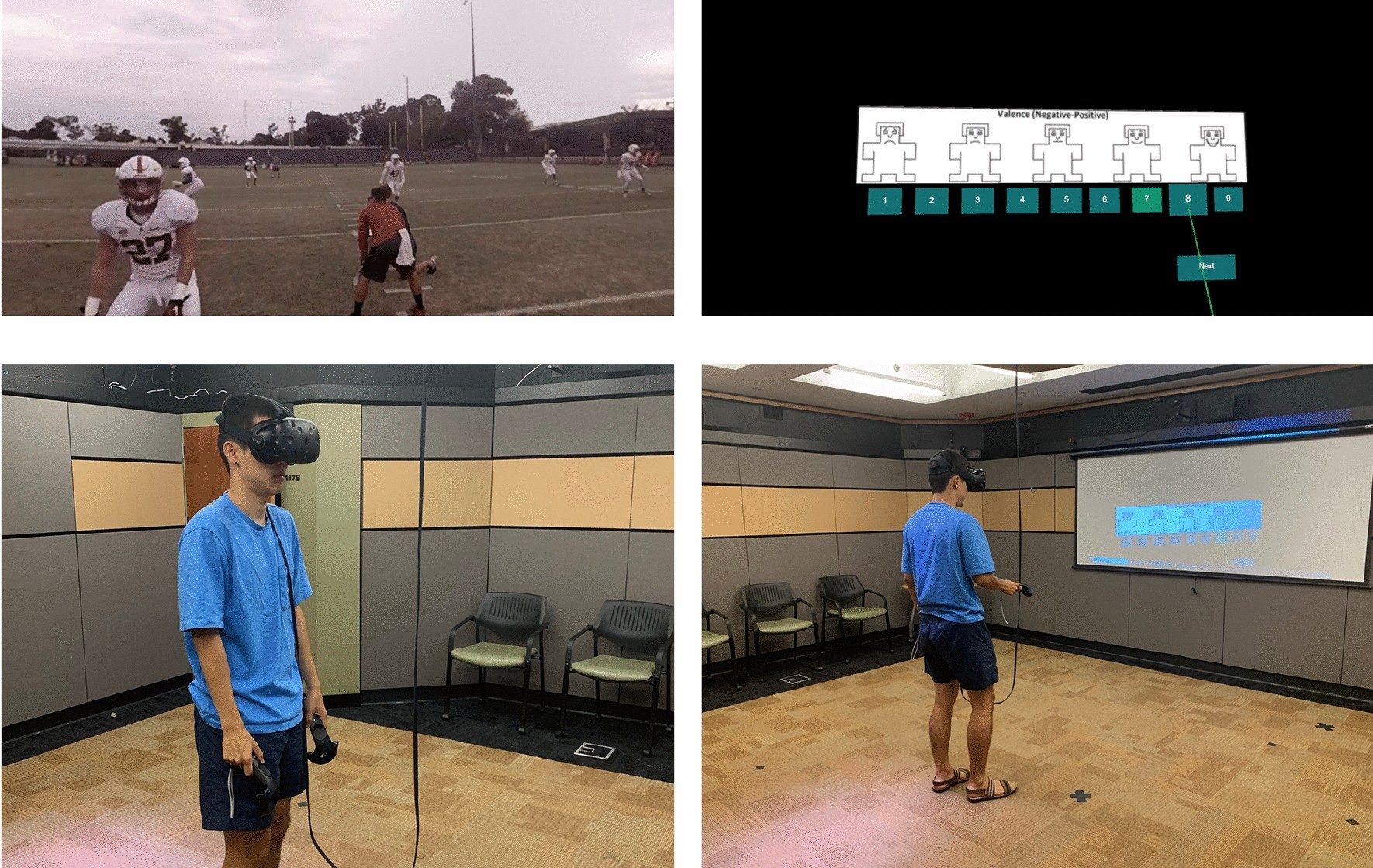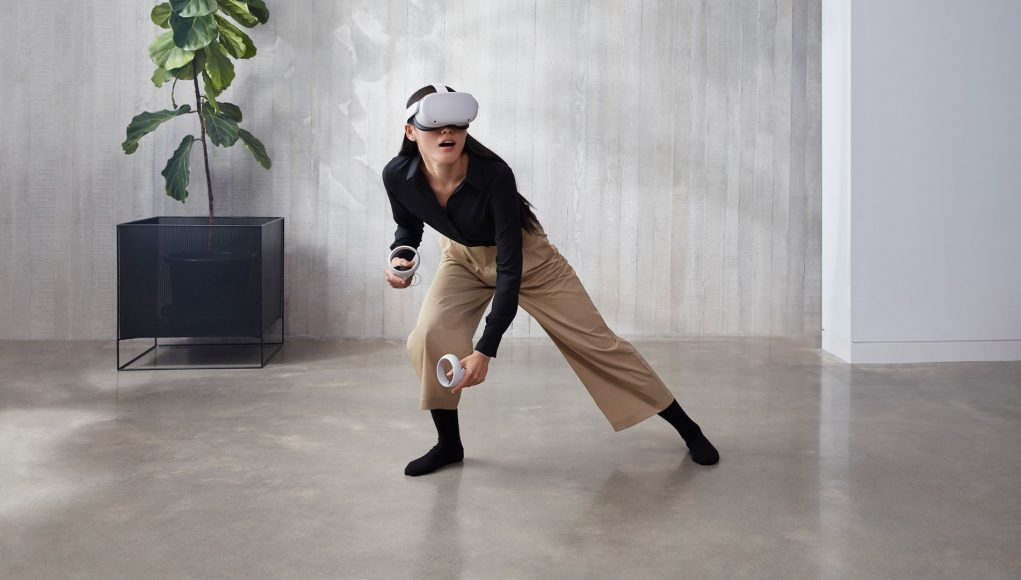Privacy in VR is an ever growing issue, especially now that all new Oculus accounts must login to Facebook with their real identity, which includes anyone who wants to use a Quest 2. Now researchers at Stanford University have shown they’re able to reliably identify individuals after only a five minute session in a standard consumer VR headset.
As reported by MIXED (German), researchers at Stanford devised a system that identifies users under “typical VR viewing circumstances, with no specially designed identifying task,” the team says in the research paper.
Using a pool of 511 participants, their system is said to be capable of identifying 95% of users correctly “when trained on less than 5 min of tracking data per person.”
Wearing an HTC Vive headset and given two Vive wand controllers, participants watched five 20-second clips from a randomized set of 360-degree videos, and then answered questionnaires in VR.

Notably, the answers to the questionnaires weren’t figured into the researchers’ dataset, but rather investigated in a separate paper examining head movements, arousal, presence, simulator sickness, and individual preferences.
Instead, VR videos were designed to see how users would react and move, with some including strong focal points such as animals, and others with no discernible focal point at all like the middle of a forest.
All of this nonverbal tracking data (both head and hands) was then plugged into three machine learning algorithms, which created a profile of a participant’s height, posture, head rotation speed, distance from VR content, position of controllers at rest, and how they move—a treasure trove of data points from just wearing a standard consumer VR headset.
“In both the privacy policy of Oculus and HTC, makers of two of the most popular VR headsets in 2020, the companies are permitted to share any de-identified data,” the paper notes. “If the tracking data is shared according to rules for de-identified data, then regardless of what is promised in principle, in practice taking one’s name off a dataset accomplishes very little.”
So whether you login to a platform holder’s account or not may already be a fairly minor issue in contrast to the wealth of information. Companies could harvest that de-identified biometrical data not only to figure out who you are, but predict your habits, understand your vulnerabilities, and create marketing profiles intent on grabbing your attention with a new level of granularity. We’re still not there yet, but as the number of VR consumers grows, so do the rewards for companies looking to buy data they simply never had access to before.
“With the rise of virtual reality, body tracking data has never been more accurate and more plentiful. There are many good uses of this tracking data, but it can also be abused,” the research paper concludes. “This work suggests that tracking data during an everyday VR experience is an effective identifier even in large samples. We encourage the research community to explore methods to protect VR tracking data.”
Granted, 500 users is a relatively small dataset in the face of what may soon be multiple millions of VR users. And when that number grows, it will undoubtedly become more difficult based on the data points alone the researchers were able to capture. The study however didn’t include a load of other burgeoning VR technologies that could be used to fill out personal profiles in the near future. Eye-tracking, optical mouth tracking, and integrated wearables such as fitness bands and smartwatches may be a part of the next step to filling out that remaining 5 percent—and all of those technologies are on the horizon for the next generation of consumer VR headsets.







